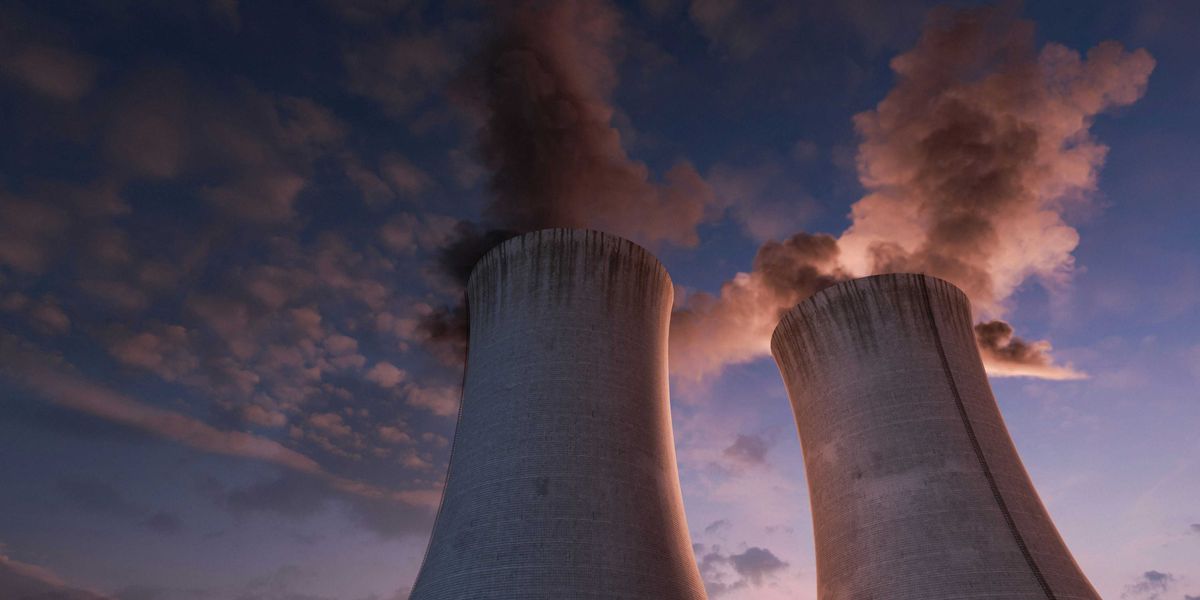nuclear energy
A uranium mine threatens the Havasupai Tribe's sole water source
A uranium mine near the Grand Canyon risks contaminating the Havasupai Tribe’s only water source, sparking fears for their health and safety.
In short:
- The Pinyon Plain Mine, located near the Grand Canyon, sits atop an aquifer that provides the Havasupai Tribe's only drinking water.
- A new study challenges the safety assessments of the mine, suggesting the rock layers could allow uranium to contaminate the tribe's water.
- The Havasupai Tribe and environmentalists are fighting the mine, fearing irreversible damage to their sacred land and water supply.
Key quote:
“Once it goes into our village, we will get sick. I question to these mining people: ‘Are you going to take accountability to pay for my people’s hospitalizations?’”
— Dianna Sue White Dove Uqualla, Havasupai elder
Why this matters:
The potential contamination of the Havasupai’s water source exemplifies the dilemma we face over prioritizing resource extraction in the face of growing environmental pressures. If the lifeblood of the Havasupai is tainted, it would be a blow not only to their survival but to the integrity of the Grand Canyon itself. Read more: Protecting Indigenous children means protecting water.
Biden enacts legislation to boost nuclear energy
President Biden signed the ADVANCE Act to expedite the deployment of advanced nuclear reactors, aiming to enhance nuclear technology as a zero-carbon energy source.
In short:
- The ADVANCE Act aims to streamline permitting, enhance resources for the Nuclear Regulatory Commission (NRC), and promote global nuclear deployment.
- Implementation may be impacted by the current vacancy on the NRC, which could depend on the 2025 presidential election outcome.
- The legislation signifies a shift in NRC's mission to support nuclear industry growth, raising concerns about regulatory independence.
Key quote:
"If this mythology that nuclear power is completely safe — that it doesn’t need to be heavily regulated — takes hold, we could see a whole generation of really dangerous experimental nuclear facilities being licensed and built around the world."
— Edwin Lyman, director of nuclear power safety at the Union of Concerned Scientists
Why this matters:
Advanced nuclear reactors promise to be safer and more efficient than traditional models, offering a sustainable alternative to fossil fuels. With the ADVANCE Act, the federal government is paving the way for accelerated development and implementation of these reactors, potentially transforming the energy landscape.
Michigan nuclear plant gets a financial boost for revival
A significant federal loan guarantee has been provided to restart a nuclear power plant in Michigan, signaling a shift in the U.S. energy strategy.
In short:
- The Biden administration offers a $1.52 billion loan to Holtec International for the Palisades plant in Michigan, aiming to keep it operational until 2051.
- This initiative is part of a broader push to sustain and rejuvenate the nuclear energy sector in the U.S., amidst concerns about aging infrastructure and the high costs of constructing new plants.
- Nuclear energy, a key player in the carbon-free electricity game, is seen as essential for meeting future energy demands without exacerbating climate change.
Key quote:
"Nuclear power is our single largest source of carbon-free electricity, directly supporting 100,000 jobs across the country and hundreds of thousands more indirectly."
— Jennifer M. Granholm, U.S. Energy Secretary
Why this matters:
The Infrastructure Investment and Jobs Act, passed in 2021, allocates billions of dollars towards modernizing America's power infrastructure, with a significant portion earmarked for advancing nuclear technology. This includes funding for the development of small modular reactors, which are seen as a safer, more flexible, and cost-effective option compared to traditional large reactors.
Small-scale clean energy and low carbon technologies—such as solar panels, smart appliances and electric bicycles—are more likely to push society toward meeting climate goals than large-scale technologies, according to a 2020 study from a team of international researchers.









